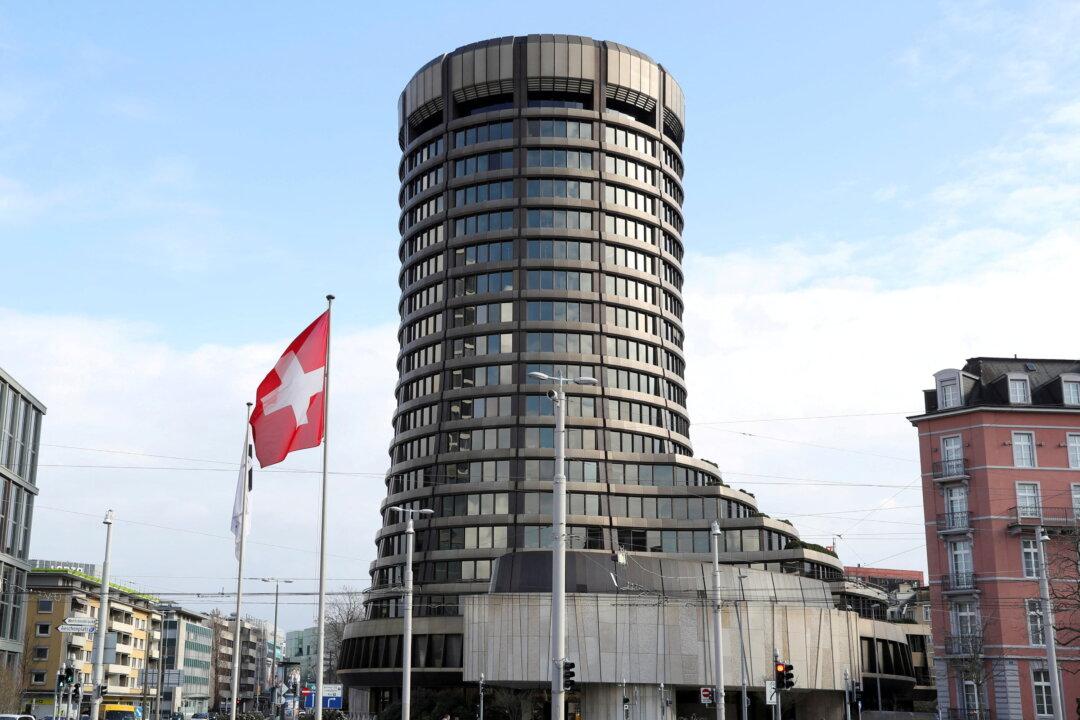The Bank for International Settlements (BIS), the Swiss-based global financial umbrella body dubbed the “bank for central banks,” has said it won’t be an avenue for any circumvention of Western sanctions placed on Russia for invading Ukraine.
The BIS, which is owned by the world’s central banks and is headquartered in Basel, Switzerland, can conduct currency and reserves transactions for its members. But a spokesperson has made clear that the BIS will not carry out transactions that will allow Russia’s central bank to get around sanctions.





